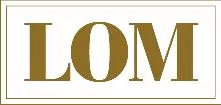North America
- Risk appetite appears to be on the upswing, as U.S. investors play up even mildly positive signals and discount all negative news. Strong positive sentiment and momentum may continue to underpin the ongoing equity rally a while longer, although contrarians are becoming concerned about the excessive cheer and are looking for a pullback.
- Fund managers are chasing tech stocks avidly, given the sector’s strong bang-for-the-buck returns in a rising market. Now, the trend may not be straight up from here, but a sustained momentum may at least give the managers good results for the fourth quarter - - which counts a lot in the rankings. As for rank-and-file investor, they haven’t lost their faith in technology stocks, which now sport even heftier multiples.
- The economy is not robust, but it is not sinking either. And, that may have been enough to bolster investor confidence in the future. The current quarter is going to be weak and that has already been factored into the calculations. But folks are looking well into 2003 to see the kind of growth they like. Meanwhile the Fed, whether it wants to admit it or not, cannot see as clearly, or as far as, Wall Street. All it can do is to pump as much liquidity into the system as needed and hope for good results.
- The underlying hope of the markets is that capital spending will pick up strongly next year, even as consumers’ willingness and ability to spend weakens. But there is still not a very good rationale for a strong sustained reprise in business investment expenditures. The best bet is for a pickup, but no splurging. Federal government spending will help too, though there is an offset from a tighter fiscal stance from lower levels of government. So, at this point in time, it looks like the average rate of growth next year will be moderate rather than stellar. This does not rule out a given quarterly surge, which will have very good bottom-line results when it happens.
- The recent corporate earnings news that were so generously interpreted by Wall Street were, in truth, only modestly encouraging. As well, analysts’ have generally been cutting consensus earnings estimates, which is not a good omen for the actual outturn. At the same time, as far as Q4 results are concerned, last years’ numbers shouldn’t be that hard to beat. All in all, positive sentiment has a strong hold, currently.
Europe
- Fears of deflation have surfaced in Germany and they have a touch more legitimacy than in the United States. Even though such worries remain a bit exaggerated, this has not stopped investors from dumping bank stocks, as loan losses mount. Swooning business confidence isn’t helping any, either. Nevertheless, the Dax index has had a good rally along with other major European indices.
- The travails of the big German economy have been noted by some officials at the European Central Bank, who may now be sufficiently worried to finally get down to cutting rates. This also brings to the fore the difficulties of operating a central bank in the European Union compared to the United States. The latter has a better-integrated economy, more flexibility and a single federal fiscal policy. In contrast, the ECB often has the difficult task of balancing the requirements of the peripheral economies against those of the core.
Asia/Pacific
- Japanese banks remain in the spotlight, and the full extent of their non-performing loans has yet to be revealed. Talk about bankruptcies and nationalisation is overdone, but it has been enough to make investors wary about owning bank stocks.
Bonds
- Recovery hopes and the equity market rally have spilled over into the bond market. Treasury yields have risen and corporate spreads have tightened. The tightening has occurred in both high-grade and junk bonds categories. It was always expected that this would happen - - only it occurred somewhat sooner, as impatient investors were willing to jump the gun. The rally in corporates came as a relief to many firms who rushed to market with new issues, fearing the window may close again.
- This has been a volatile year in the bond market and both the Treasury sell-off and the rally in corporates was a bit overdone. However, the tone has been set for next year. Treasury yields will rise, along with an improving economy and deteriorating government deficits, while corporate spreads will narrow as their finances improve. The Fed will initially keep interest rates low for as long as possible, anchoring the short end of the yield curve.
Currencies
- With renewed elation about prospects for the U.S. economy, the dollar has made gains versus the yen and the euro. The greenback is hovering around parity level against the Eurozone currency, and is expected to trade in a relatively narrow range, in the near term - - barring shock events.
- The global recovery story is also spilling over into the commodity currencies, which have taken off earlier than expected. Metal prices are rising, though the latest upswing may have more to do with short covering than improving fundamentals.
The content of this article does not constitute legal advice and should not be relied on in that way. Specific advice should be sought about your specific circumstances.

